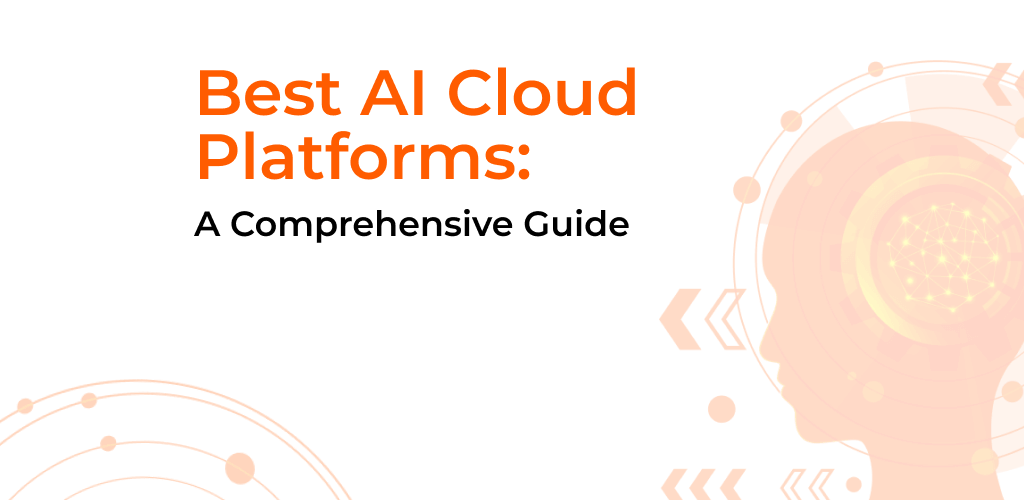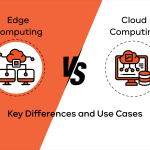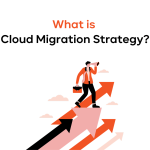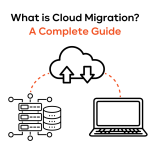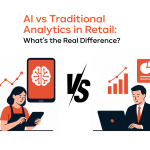Today’s business is hungry for everything AI. Yet, AI models require immense data and computational power. Company-owned resources are not always able to curb those needs. AI cloud platforms come to the rescue with virtual storage and computational power at scale, making AI cheaper and faster to build.
In this article, we shall discuss AI clouds, what they offer, and how to choose the best AI cloud platform for your needs. You’ll discover:
What is an AI cloud platform?
AI clouds are an extension of traditional cloud platforms. Yet, this subdivision is tuned for working with AI. This means AI clouds have tools for big data, machine learning, and AI applications of any size and scale.
Like traditional ones, the cloud AI platforms provide large storage and robust infrastructure. They also offer more computational power. The difference is that, on top of that, AI clouds provide a large set of convenient tools to build AI:
At the same time, solutions built on an AI computing platform come ready for integration. They merge with on-the-premise products or the cloud ones. The integration is carried out through a vast selection of APIs.
The pace of AI cloud adoption surges: from 2,700 cloud implementations among industry hyperscalers this year, 608 (22%) use an AI cloud service. Interestingly, based on the number of use cases, Microsoft Azure can be called the best AI cloud platform, followed by Google and Amazon.
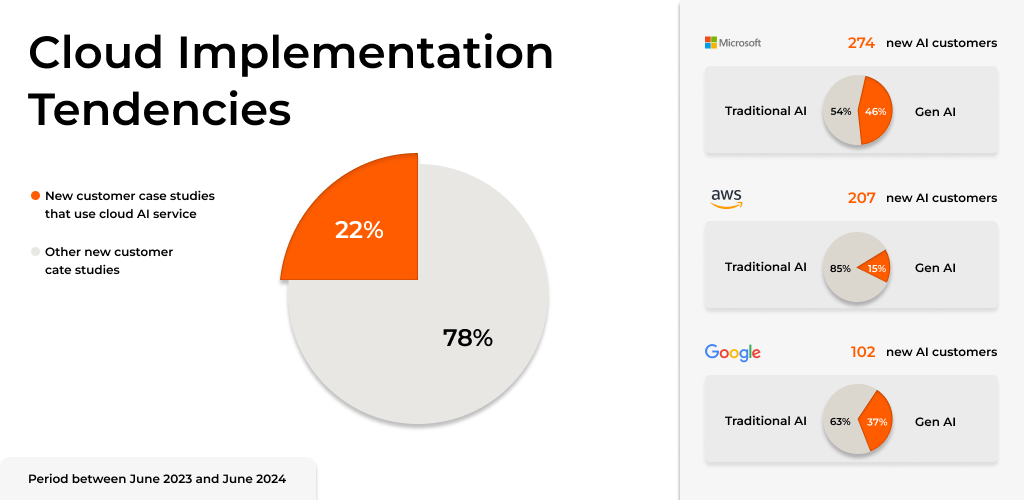
Importance of AI in modern cloud computing
AI and cloud computing are mutually beneficial domains. The cloud provides space and power to train machine learning models. AI, in reverse, provides opportunities to manage cloud solutions.
Typical AI benefits come in handy in various cloud management situations. Examples are automation, data-based decision-making, and predictive analytics. For example, AI allows for the automation of a range of operations. It helps predict a possible increase in power demand. Detecting defects or early signs of cyber-attacks is also a handy feature.
Generally speaking, clouds set billions of parameters for billions of users. AI’s role is to manage this amount of operations seamlessly.
The use cases of cloud AI range through industries. An AI computing platform in manufacturing helps optimize supply chain optimization. In healthcare, it helps build virtual assistants and diagnostic tools. In finance, AI is used to make market predictions, handle claims, and more.
Key features of AI cloud platforms
Focusing on the critical benefits of a particular business case is essential for selecting the best AI cloud platform. The most common advantages to expect from a cloud AI platform are as follows:
Scalability and flexibility
Cloud AI platforms have powerful capabilities to sustain high workloads. They are free from boundaries inherent to physical infrastructure. Whenever a solution needs more computational power, an owner switches to another plan. Similarly, it is easy to ramp down.
Data processing capabilities
The top AI cloud business management platform tools have handy features to manage data storage and quality. For example, they automatically pump data scrapped online into a database. User-friendly dashboards cater to data transparency. The storage demand is also detected automatically, and resources are allocated accordingly.
AI cloud platforms identify, diagnose, alert, and clean faults in the database system. Finally, data structuring tools bring data to the formats needed for model training.
Machine learning tools and frameworks
AI clouds come with prebuilt models and algorithms for various tasks. They include object detection, natural language processing, data extraction, predictions, and others. Their main benefit is that they do heavy lifting for you. This means you don’t have to use a database of a trillion words to train new ChatGPT. You can simply take an existing model and fine-tune it on your data if needed.
Yet, it is possible to train proprietary foundation models based on a huge variety of data. This way, you benefit from an extremely user-friendly interface with drag-and-drop functionality. By the way, checking on ML tools offered in cloud suits is critical to selecting the best AI cloud platform.
AI model development and deployment
Cloud provides tools for end-to-end AI lifecycle management. This includes model training, deployment, validation, testing, and iterating. You can conveniently save previous product versions and iterations. Some platforms allow switching between different models and comparing parameters between them.
Model validation is simplified through the use of different validation matrices. People with limited expertise can use automated machine learning or AutoML. This is the feature that performs model-building and validation functions via prompts.
Integration and API support
Cloud-based AI models offer APIs for various AI applications. Supported features are voice recognition, ID extraction, sentiment analysis, and many more. In short, every ML and AI feature offered by AI cloud comes with a dedicated connector to plug into an existing software product or app.
Security and compliance
The top AI cloud business management platform tools include big names like AWS, Google, and Microsoft. They set the best security practices industry-wide. This way, any cloud platform ensures stringent security measures. This includes protection from indirect prompt injections, hallucinations, jailbreak attacks, and more. Cloud tools also provide transparency in data use. They also ensure compliance with regulations like GDPR, PCI DSS, HIPPA, AI Act, and others.
Thus, while selecting the best AI cloud platform for your needs, it is important to review the tools they offer. At the next step, it is important to check if they stand up to your in-house needs.
Top AI cloud platforms
To help you select the best cloud platform for AI, we’ve prepared this list of industry-leading solution providers. Our selections belong to both world-known brands, like Amazon and Google, and some promising newcomers. They all have extended feature sets and interesting use cases to compare.
1. Amazon Web Services (AWS) AI
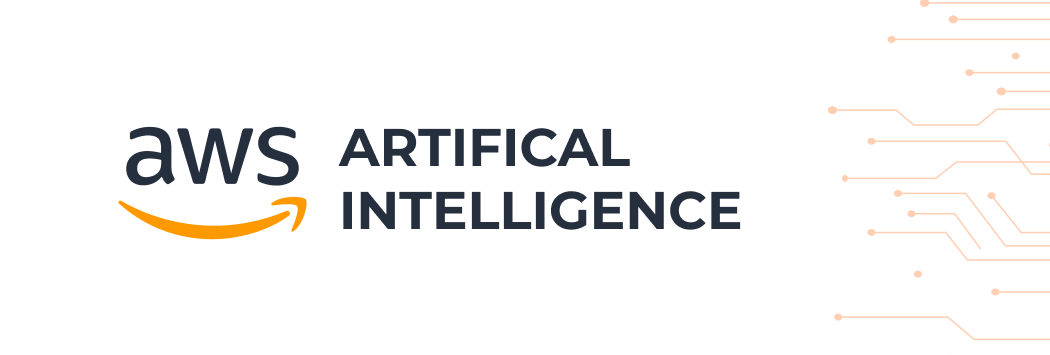
Key features and capabilities: Amazon SageMaker is a fully managed AI building service. It offers a simple workflow to build, train, validate, and deploy various models. The handy tools like notebooks, debuggers, profilers, pipelines, MLOps, etc., streamline AI creation. Amazon SageMaker ranks as one of the top AI cloud business management platform tools. You can build propriety foundation models trained on large datasets.
Alternatively, you can use hundreds of pre-trained models with just a few clicks. This is possible through Amazon Bedrock. This product offers a choice of high-performing foundation models from companies like Meta, Mistral AI, Amazon, and others. You can experiment with different FMs to evaluate the best ones for your use case. Amazon products are designed to simplify control and provide transparency in your projects. This makes compliance easy to reach and maintain.
Unique selling points: Amazon offers a wide spectrum of services. Therefore, it deserves to be called the best AI cloud platform for every use case. The platform also provides try-before-you-buy options for businesses of every size. This gives users with limited expertise in machine learning an idea about the various AI features.
Target industries or use cases: Amazon Web Services enables various use cases. For example, their Mphasis Deep Insights Text Summarizer allows for reducing long documents to the size of a few sentences. Another example is an aerial traffic detector based on their Hermes solution. Also, you can develop apps based on image feature extraction, chatbots, etc.
_____________________________________________________________________________
Get started with AWS generative AI today
Accelerate your innovation journey with AWS’s cutting-edge AI tools. Receive personalized guidance on secure AI integration.
_____________________________________________________________________________
2. Google Cloud AI Platform
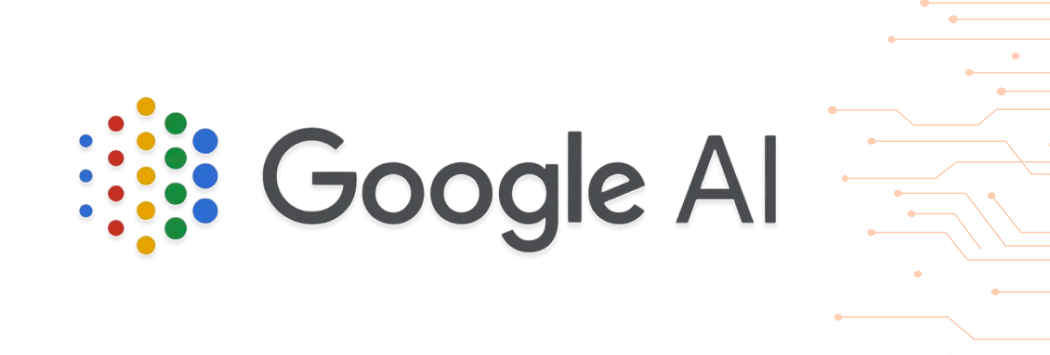
Key features and capabilities: Google Cloud Platform for AI building presents a comprehensive set of blocks for AI. They include pre-trained models, APIs, robust data storage, and processing capabilities. AutoML allows the training of custom ML models with little machine-learning expertise.
For generative AI, there is Vertex AI. It has 160+ pre-trained models to cover various use cases. Using Vertex AI is very simple. It supports prompts in the form of text, images, and code. Vertex AI also offers purpose-built MLOps tools for data science tasks.
Unique selling points: A feature that makes Google one of the best AI cloud platforms is integration with the immense data warehouse.
Target industries or use cases: Google Cloud is a universal platform for businesses of all sizes. It allows building applications like generative AI agents with a couple of prompts. Other use cases include document summarization, Natural Language AI, and conversational AI. Object recognition and text-to-speech solutions deserve special attention, too.
3. Microsoft Azure AI
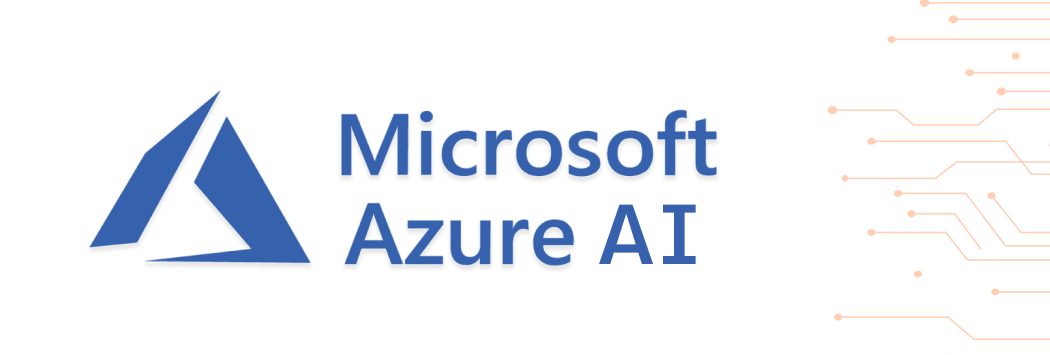
Key features and capabilities: Microsoft Azure AI seems to be the most popular platform among the top AI clouds in 2024. It presents 45% of new market case studies and 62% of genAI-focused case studies. It offers more than 200 tools and services to build powerful AI applications.
The product offers a vast Azure AI models catalog. A customer can use pre-trained models or swap them through an API. Their retrieval augmented generation (RAG) feature automatically turns diverse data into structured knowledge.
Unique selling points: Microsoft Azure AI offers seamless integration with other Microsoft products. Clients benefit from powerful infrastructure and enhanced security measures. Altogether, these features make it one of the best AI cloud platforms for security.
Target industries or use cases: Microsoft Azure is used across various industries. Users range from manufacturing leaders like Siemens to HoReCa players like McDonald’s. Popular use cases involve object detection, speech recognition, and building virtual assistants. Text-to-speech solutions, image feature extraction, and conversational AI are also attention-worthy.
4. IBM Watson
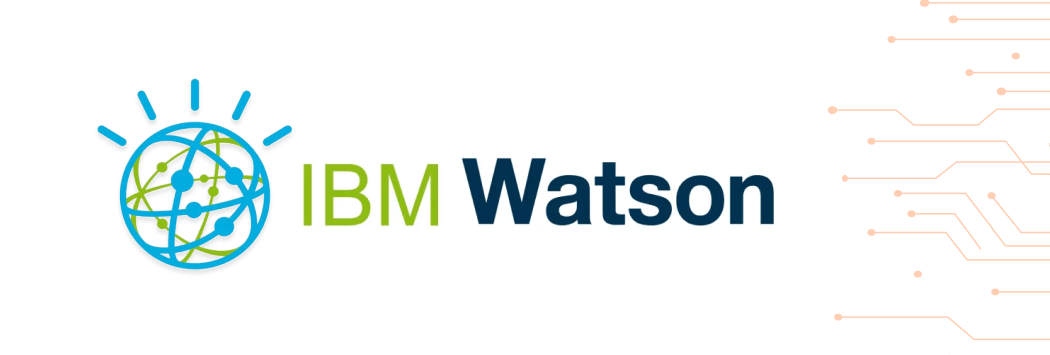
Key features and capabilities: IBM Watson offers end-to-end AI lifecycle management. The handiest features are AutoML and drag-and-drop AI models. Protection from data exposure helps build compliant solutions.
The system provides automated model validation and tools to reduce model monitoring efforts. Advanced data refinery and handy visual tools grant more transparency to the project.
Unique selling points: IBM Watson is suited for on-premises or private cloud development. The solutions are consumable with other public clouds, including AWS, Microsoft Azure, and Google Cloud.
Target industries or use cases: The product can be used to build models across all industries. The most prominent use cases belong to healthcare and finance. IBM solutions assist in medical diagnosis, drug discovery, and personalized patient care. This makes IBM Watson one of the best AI cloud platforms for healthcare.
5. Oracle AI Cloud Services
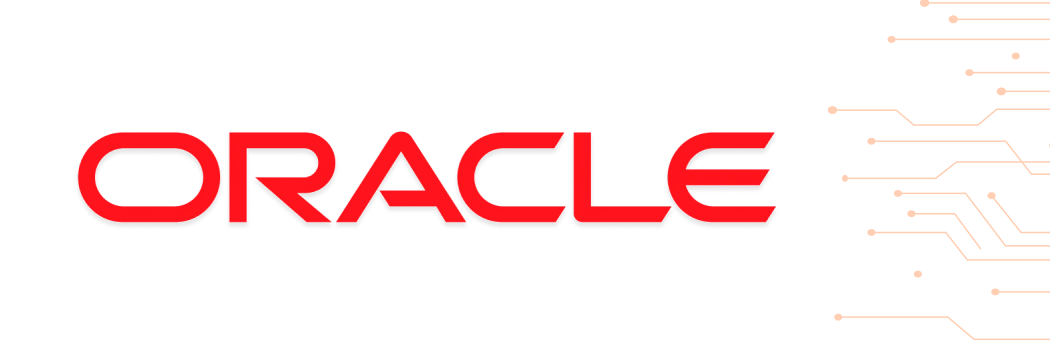
Key features and capabilities: Oracle offers a full-scale package for the complete AI lifecycle. Their data labeling services offer data engineers a comprehensive set of user-friendly tools. They also have large, structured data sets for model training from scratch. A range of machine learning innovations, like vector databases, provide accurate, high-performing models. The in-database tools simplify building, managing, and deploying different ML models.
There is also a possibility of combining large language models with proprietary data. Based on this, you can build a solution for any complexity and scaling needs. Oracle provides a powerful infrastructure supported by 65,536 GPUs. Moreover, it is proposed to grow up to 131,072 GPUs anywhere soon. This makes Oracle one of the best AI cloud platforms for scaling.
Unique selling points: Oracle offers a combination of GPU bare metal instances and ultrafast RDMA clusters. This allows for better pricing compared to other providers. Users also benefit from high performance with 500 Gb/sec of sustained throughput.
Target industries or use cases: Oracle is used to build image recognition apps, NLP, and predictive analytics. Recommendation engines, intelligent chatbots and virtual assistants for customer service enhance retail. Enterprise-level digital twins streamline operations and supply chains. Their target industries are critical sectors, like government, finance, and nuclear energy.
6. Salesforce Einstein
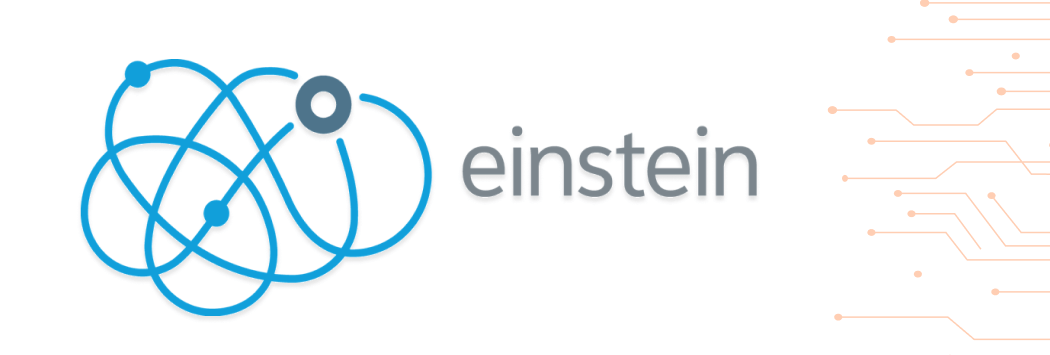
Key features and capabilities: Salesforce’s original business target was sales and advertising. Yet their cloud solution evolved into an all-purpose tool. It embraces various use cases. Heathrow Airport’s virtual guide and warranty claims automation are some to mention.
Einstein powers analytical and generative AI solutions based on prebuilt models or custom ones. TransmogrifAI, an auto machine learning service, simplifies various ML tasks. It is extremely handy for non-experts and cuts months of AI development into days. Salesforce offers flexible pricing plans. Practically, businesses of various sizes can step into AI development with Salesforce.
Unique selling points: Salesforce Einstein is by all means the best AI cloud platform for sales and marketing automation. Their AI solutions shine in automating workflows, building forecasts, building autonomous AI agents to optimize sales processes, and personalization.
Target industries or use cases: Salesforce Einstein is best for multi-purpose virtual assistants. Sales forecasting, optimizing workflows, personalization, lead, and opportunity scoring boost operations. Call summaries, customer behavior scoring, and conversation exploring allow for better personalization.
7. SAP Leonardo
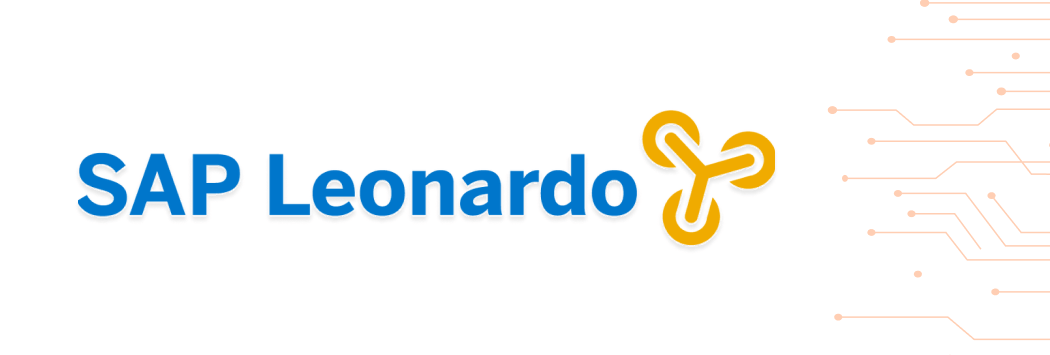
Key features and capabilities: SAP Leonardo started as an IoT provider in 2017. In recent years, they’ve expanded their services. Today, they provide solutions in data science, machine learning, and artificial intelligence solutions. Their aim is to simplify the AI journey for non-experts. SAP Leonardo offers tools to build applications based on pre-trained ML models for predictive and functional AI. The Integrator tool ensures the smooth integration of AI applications in different environments.
Unique selling points: Since the company started providing IoT solutions industry-wide, we may call SAP Leonardo the best AI cloud platform for the integration of smart electronics in AI solutions.
Target industries or use cases: SAP solutions are used across industries. The tasks covered are intelligent financing, ticket classification, document feature extraction, and image classification. Time series forecasting and similarity scoring are useful across industries. Supply chain management and product lifecycle management solutions are handy for manufacturing.
8. Alibaba Cloud AI
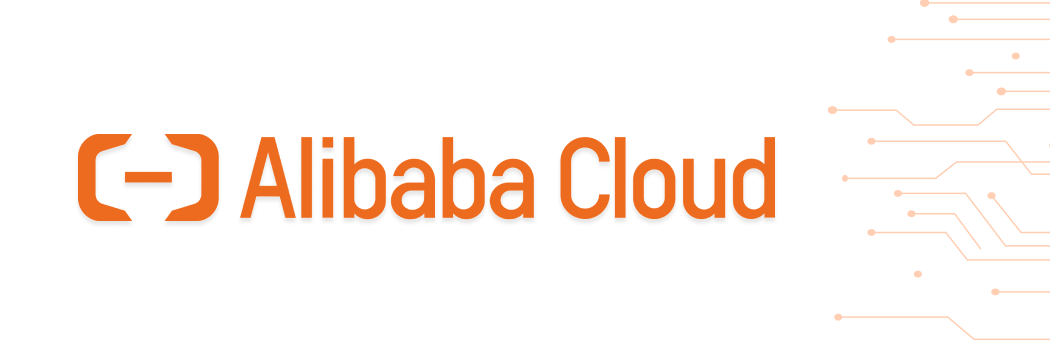
Key features and capabilities: Alibaba Cloud AI provides whole-process services for AI building. Their offering includes intelligent data labeling and preparation multimodal services. The prebuilt models (Alibaba Cloud’s Tongyi Qwen, Stable Diffusion, Llama 3, and others) allow the creation of solutions for any use case. If they are not enough, a business can create custom ML models with a one-stop visualized modeling tool. The solution is perfect for large-scale complex models.
Unique selling points: Alibaba speeds up model training by 70% and inference by 2-3 times. This is due to their GPU-based AI accelerator. This feature makes Alibaba the best AI cloud platform for fast solutions.
Target industries or use cases: Alibaba Cloud AI’s featured use cases include text and image generation. Other cases include image style transfer, clothes virtual try-on, and sketch-based image generation. Its intelligent shopping solutions enhance e-commerce.
9. H2O.ai

Key features and capabilities: H2O.ai offers end-to-end fully managed tools for data science and machine learning. Their award-winning AutoML and no-code deep learning engines enhance frictionless model training. At the same time, these tools can build enterprise-level solutions.
The platform allows customizing open-source ML models like GPT or creating proprietary ones. The model accuracy is guaranteed by the state-of-the-art intelligent data preparation tool. Also, a user remains the owner of all the stack, from data to prompts. Automated machine learning is another perk of this cloud AI platform.
Unique selling points: The platform allows the building of zero-code models and boasts of deep learning models using training techniques developed by Kaggle Grandmasters.
Target industries or use cases: H2O.ai develops solutions applicable across industries. Manufacturing, government, healthcare, and finance become the target spheres. The popular use cases include hospital capacity simulators and predicting ICU transfers. Insurance claim management and credit scoring enhance operations as well.
10. DataRobot
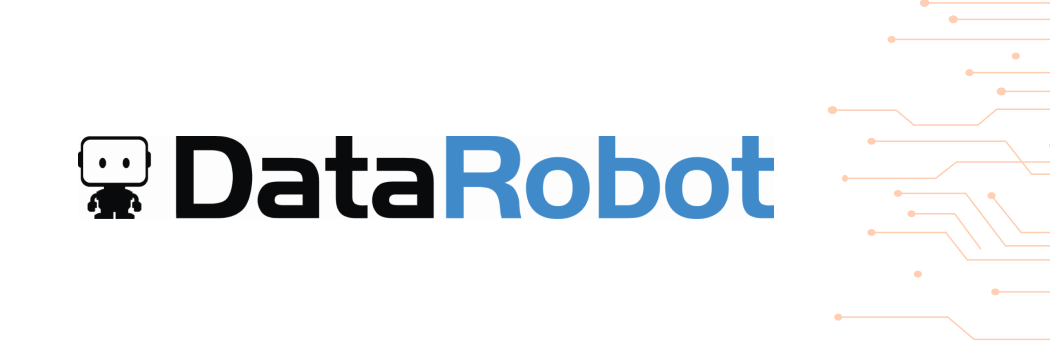
Key features and capabilities: The DataRobot AI cloud is a full-spectrum service for AI. It allows for building, training, and deploying industry-leading applications. Their featured product is Enterprise AI Suite. The tools for building AI apps, an AI platform for building products in generative AI, and predictive AI are user-friendly. They also provide for AI governance and observability. The solutions integrate well with Microsoft Azure, Google Cloud, or AWS.
Unique selling points: The product deserves to be among the best AI cloud platforms for its ease of use, onboarding, and wide spectrum of services.
Target industry or use cases: energy, financial services, healthcare, manufacturing, public sector. The interesting use cases are inventory optimization and materials processing efficiency. Generative AI helps with mechanical design optimization and product quality intelligence. Personalized communications, product recommendations, and conversational chat interface enhance customer satisfaction.
Comparing the best AI cloud platforms
To select the best AI cloud platform for your business case, it is helpful to compare them by the following parameters:
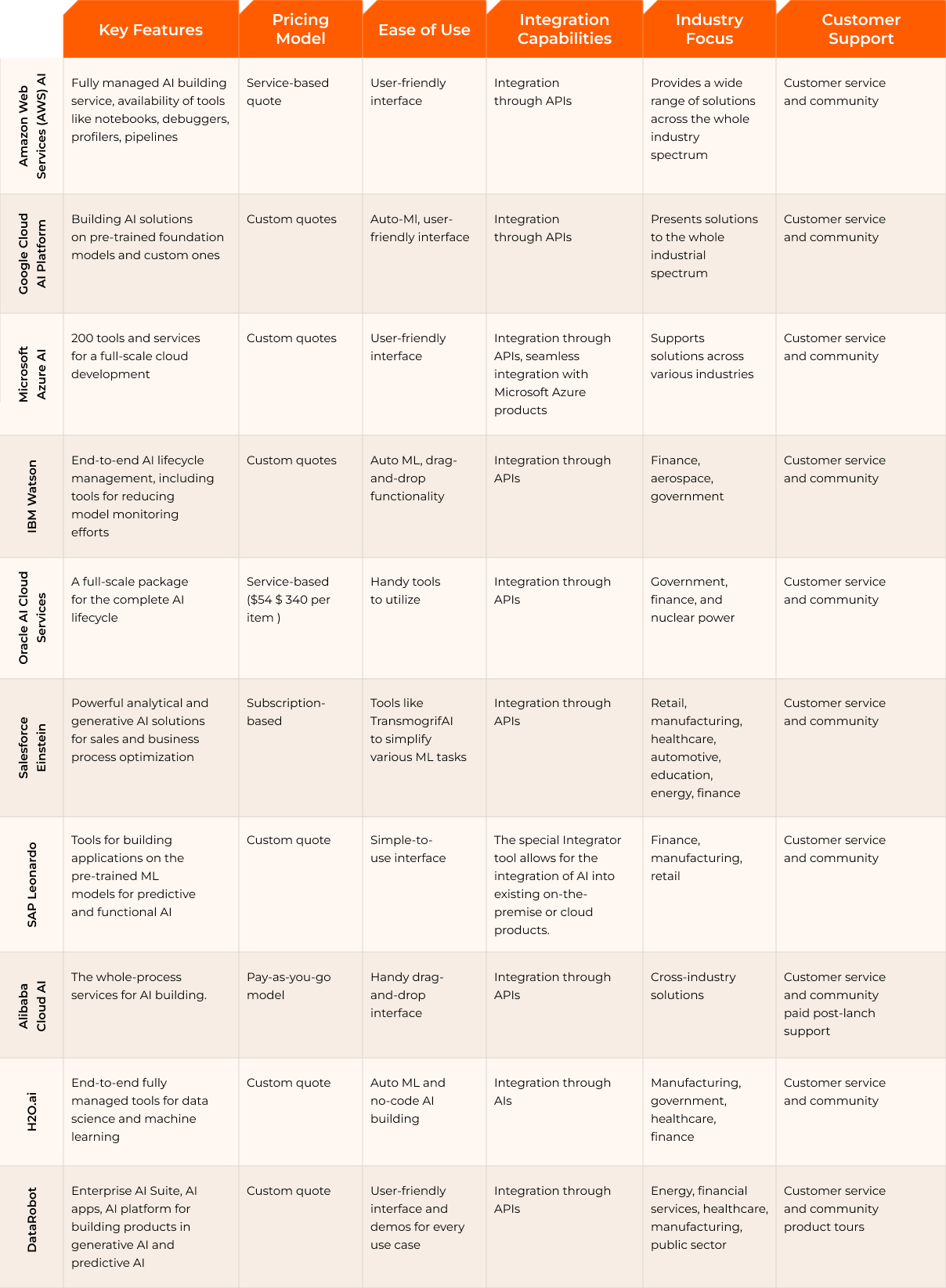
Best Practices for Choosing an AI Cloud Platform
So, you know the key market players providing AI cloud services. Now, let’s elaborate on the practical steps to choose the best AI cloud platform for your needs.
- Assess your organization’s AI needs and goals.
It is generally recommended to start deploying AI solutions with the most urgent use case. For example, if a manufacturer receives a lot of returns on some of the products, it’s better to start with defect detection AI.
Data availability and quality play a huge role in this process. As the final solution is as good as the data fed into it, it’s best to start with a use case where high-quality data are presented in abundance.
- Consider scalability and future growth.
As technology develops, any business should be prepared to scale. At some point, any business needs to expand use cases of AI across the company. Therefore, it is important to benchmark the AI cloud providers scaling features and plans.
- Evaluate pricing models and total cost of ownership
The Cloud AI providers offer subscription-based services or craft quotes based on your needs. Some include try-before-you-buy options, and others provide for a free trial. So, it is necessary to study all the payment options before you go ahead. This will help weigh in on which provider will be the best cloud AI platform for you in terms of cost-quality ratio.
- Check for compatibility with existing systems.
Integrating the future AI solution within the existing tech environment may be burdensome. It is clear that Salesforce Einstein, for example, integrates well with the native platform. Yet it is important to check how it will work with other products.
- Review security and compliance features.
All of the presented top AI cloud business management platform tools provide enhanced security. Yet, your project may have specific needs that require special attention.
- Assess the level of technical expertise required.
Not all of the AI cloud platforms are beginner-friendly, and it is clear that some solutions require an expert to step in. It is recommended to check whether a solution you need can be built with the means of an AI cloud, or a dedicated expert team will be required.
- Consider the availability of training and support.
Clear guidelines and a user-friendly interface translate into shorter time-to-market and lower costs. Therefore, check on the support and community before you start.
- Look for case studies and customer reviews.
It is best to start with a solution if another player in your business domain has built something similar. Therefore, it’s worth trying to check on case studies to take over best practices and avoid mistakes.
Conclusion
AI cloud platforms make AI more accessible to everyone and, at the same time, have the power to make enterprise-scale solutions. As the market grows, new features and use cases expand. They work as lighthouses for others to follow and innovate.
Yet, the success of every AI project starts with carefully evaluating business needs and existing resources. Those who start with the right use cases and proper preparation harness the unlimited benefits of AI, like competitive advantage, innovation, faster time-to-market, and cost savings.
